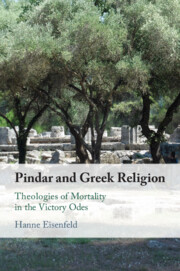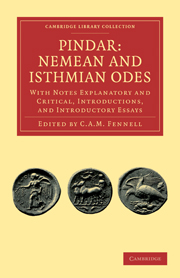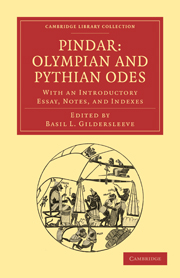Pindar and Greek Religion
Pindar's victory songs teem with divinity. By exploring them within the lived religious landscapes of the fifth century BCE, Hanne Eisenfeld demonstrates that they are in fact engaged in theological work. Focusing on a set of mythical figures whose identities blur the boundaries between mortality and immortality (Herakles, the Dioskouroi, Amphiaraos, and Asklepios), she newly interprets the value of immortality in the epinician corpus. Pindar's depiction of these figures responds to and shapes contemporary religious experience and revalues mortality as a prerequisite for the glory found in victory. The book combines close reading and philological analysis with religious historical approaches to Pindar's songs and his world. It highlights the inextricability of Greek literature and Greek religion, and models a novel approach to Greek lyric poetry at the intersection of these fields.
- Reconstructs religious landscapes of the fifth century BCE as relevant contexts for Pindar's victory odes
- Breaks down the boundaries between religious-historical and literary approaches to Pindar's epinician corpus
- Develops case studies through close readings of nine victory odes
Reviews & endorsements
‘… Eisenfeld offers exciting new insights into some of Pindar’s most confusing and difficult passages.’ Joshua A. Zacks, Bryn Mawr Classical Review
Product details
July 2024Paperback
9781108926430
294 pages
229 × 152 × 16 mm
0.429kg
Available
Table of Contents
- 1. Pindar mythologus and theologus
- 2. Herakles looks back at the world
- 3. The Dioskouroi in existential crisis
- 4. Exaltation at Akragas: Herakles, the Dioskouroi, and Theron
- 5. The isolation of Amphiaraos
- 6. Asklepios and the limits of the possible
- 7. An invitation.






